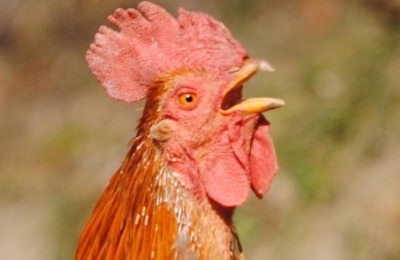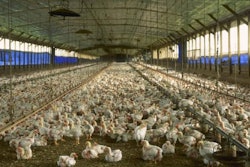
India’s new General Guidelines for Biosecurity at Central Poultry Development Organizations is aimed at research institutes but the principles can be applied to state farms, according to the Department for Animal Husbandry, Dairying and Fisheries (DAHD) as well as private enterprises.
Previous outbreaks of avian Influenza at Central Poultry Development Organizations (CPDO) in Bhubaneswar and Hessarghatta have shown the critical importance of implementing an effective biosecurity plan to prevent future disasters. The standard operating procedures (SOPs) proposed are designed to act as a roadmap to raise awareness and help maintain biosecurity. Sections are included on farm location, restricting access to the farm and poultry sheds by visitors, vehicles and equipment, and rules for workers.
New birds must be isolated and quarantined after arrival. Effective cleaning and disinfection is an essential component of good hygiene and thus one of the key biosecurity measures for disease control, according to the publication, which goes on to include guidance on cleaning and disinfection of the house and all equipment, disposal of mortalities and manure.
The 16-page publication says “The birds should be provided certain medicines and essential vaccines regularly, which can boost immunity such as vitamins, trace minerals and proteins. Deficiency of these will not only lead to decreased production but there will be more chances of getting infection in flock with a low level of immunity. Anti-stress medication during hot weather, after de-beaking, dubbing etc. may be given.”
Among the regular checks recommended are for mycotoxins or other toxic components in the feed; Salmonella levels in the poultry house; isolation, and the identification and antibiotic resistance testing of any pathogenic organisms. Controlling the environmental temperature is important to minimize heat stress. Workers should be educated about diseases, their transmission and preventative measures. Finally, the guidelines include recommendations for documentation and records that should be kept for each farm, and what do if an outbreak of disease is suspected.

















